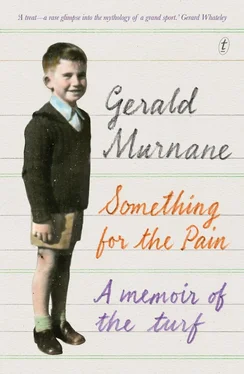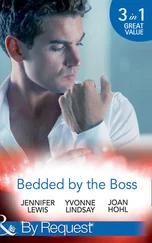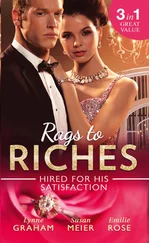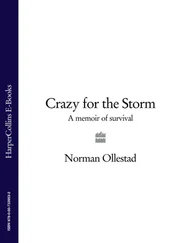Was it Mark Twain or Ambrose Bierce who defined alcohol as a substance that causes madness in the minds of total abstainers? Catholics were supposed to be tolerant towards alcohol, to say the least, but we had our few campaigners against Demon Drink. I know nothing of their origins, but there flourished during my secondary-school years a body known as the Pioneer Total Abstinence League, if I’ve recalled their title correctly. In the great days of the church, all manner of leagues and societies and confraternities and sodalities flourished, each with its special aim and each managed and promoted by one or another religious order. I gather that the total abstinence body had been entrusted to the Society of Jesus. Certainly, a Jesuit named Dando was the front man, so to speak. He visited schools and preached at confirmation ceremonies, always with the aim of having his hearers pledge themselves to a lifetime of abstinence from alcohol. I seem to recall that those who thus pledged were given a colourful certificate and a lapel badge. I moved so often from school to school as a boy that I was fifteen before confirmation caught up with me. I was confirmed by Archbishop Simonds, the coadjutor to Daniel Mannix, one Sunday afternoon in 1954 in Saint Joseph’s Church, Malvern, which was full to the doors for the occasion. Father Dando, S. J., was given his timeslot and preached briefly but forcefully. Alcohol, he told us, was one of God’s gifts and in itself neither good nor evil. Unfortunately, a great many people drank alcohol to excess, bringing harm to themselves and others and, of course, sinning mortally. Our lifetime of abstinence would make reparation to God for the sins of the abusers of alcohol. He urged all of us about to be confirmed to recite after him the words of the Pioneer League’s pledge and, of course, to honour the pledge for the rest of our lives. I forget how we were to obtain afterwards our certificates and lapel badges, but no doubt he explained this at the time. Such was the volume of sound when the pledge was recited that every child in the church might have been swearing off the grog for life — every child except myself. As I wrote earlier, I knew hardly anything about alcohol. Drinking played no part in any of my frequent daydreams of the future. And yet, I did not take the pledge, perhaps because I’ve always avoided involvement in mass movements or demonstrations, or perhaps because I thought it unfair that I had to apologise to Almighty God for Great-grandfather William’s occasional excesses. Surely most of those in the church that day became drinkers in later years, but they would have been less fortunate than I. Whenever, as a novice drinker, I woke next morning in misery, my remorse would have been only on account of the quantity I had drunk on the night before. They would have suffered in addition from the shame of having broken their childhood pledge.
I consider myself a controlled alcoholic. Some persons whose lives have been marred by alcohol might consider the phrase an oxymoron and might even be offended by my using it. I first heard it used to describe an expatriate Australian painter who lived out the last part of his long life in Italy. Every day during the last thirty or forty years of his life, the man sipped a measured amount of white wine from early afternoon until his bedtime. He lived well into his eighties. I’ve always disliked wine. I’ve drunk whisky or rum when beer was unavailable, but I’ve always diluted the spirits considerably. My preferred drink has always been beer and, for the past twenty years, my home-brewed varieties. I’ve seldom enjoyed drinking with large groups in hotels. In my first years as a drinker, the hotels closed at 6.00 p.m. Any beer bought before closing time could be drunk on the premises during the first fifteen — or, was it twenty? — minutes after closing time. Drinkers arranged themselves in so-called schools. Each member of a school bought in turn a round of drinks for the whole school. As closing time approached, those members whose turn to buy was approaching would buy their rounds in advance, so to speak. When the bar closed, each member of a school of four might have in front of him three glasses of beer, all requiring to be downed in the next fifteen minutes or so. In 1962, which is the year when this section of my book is set, I drank nearly every night in Frankston with a group of teachers and others and was often obliged to lie down for an hour after I had returned home from a session of what would now be called binge drinking.
After I was married, I seldom drank in hotels. Until my early middle age I had neither the time nor the money to drink more than a bottle or two of beer of a weekend, and this I drank always at home. After my sons had left home, in the early 1990s, I took early retirement and began to brew my own beer, which has an alcoholic content one and a half times that of standard beers. During the past twenty years, I’ve drunk a measured amount of home brew during almost every afternoon and evening — mostly alone, I’m not ashamed to report. I’ve had no illness to speak of since a bout of bronchitis more than forty years ago, and I’ve had to visit a dentist only once since I left school in 1956. I give myself a good chance of living for as long as that expatriate wine sipper, whatever his name was. As I said, I’m a controlled alcoholic.
I wasn’t so controlled in 1962. In that year, I felt as though I had reached some sort of dead end or had painted myself into a corner. The year was my third as a primary teacher. When I had left teachers’ college, at the end of 1959, my ambition had been to have several poems or short stories published in literary magazines within the next three years. In 1962, the third of the years was passing and I had had nothing published. Worse, I had written hardly anything. What was wrong with me, I wondered, and while I wondered I drank. And, for the first time in my short career as a racegoer, I began to drink at the races. This was something that my father and Teddy Ettershank considered a sort of degeneracy. But my father had died two years earlier, and who was Teddy Ettershank to me?
I was living and teaching in Frankston at the time. I had joined the Frankston Yacht Club as a social member. I’ve always hated and feared the sea, and I kept away from the yacht club on their sailing days, but on Friday evenings I got very drunk in their clubhouse and played carpet bowls until I couldn’t see straight. On Saturday mornings, still hung over, I withdrew ten or twenty pounds from the State Savings Bank in Frankston (all banks opened on Saturday mornings in that long-lost golden era) and caught the train to Melbourne and whichever racecourse was the site for the meeting of the day. By then I could afford to pay my way into the most expensive of the several enclosures, the paddock. I was respectably dressed in a suit and tie. (Jeans and tracksuits were never seen on racecourses then.) A Saturday program comprised always eight races. My practice was to station myself before the first race in one of the bars and to drink two glasses of beer while I studied the form guide and the race book. I did this before each of the seven later races. Admittedly, the glasses were smaller than the standard glasses served in hotels, but by the end of the day I had drunk more than enough to befuddle the skinny apprentice boozer that I was in my early twenties. What puzzles me most nowadays, when I get up several times in the night to empty my bladder, is how I managed to survive the long train trip home to Frankston every Saturday evening. I owned no car throughout the early 1960s, and no toilets were provided on the suburban trains. The journey from Melbourne to Frankston took an hour, and yet I always survived, with hardly any discomfort, until I reached the toilets at Frankston station.
Читать дальше












